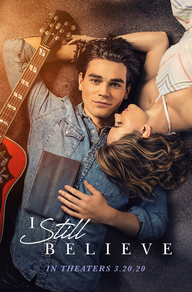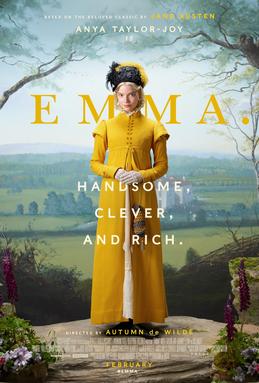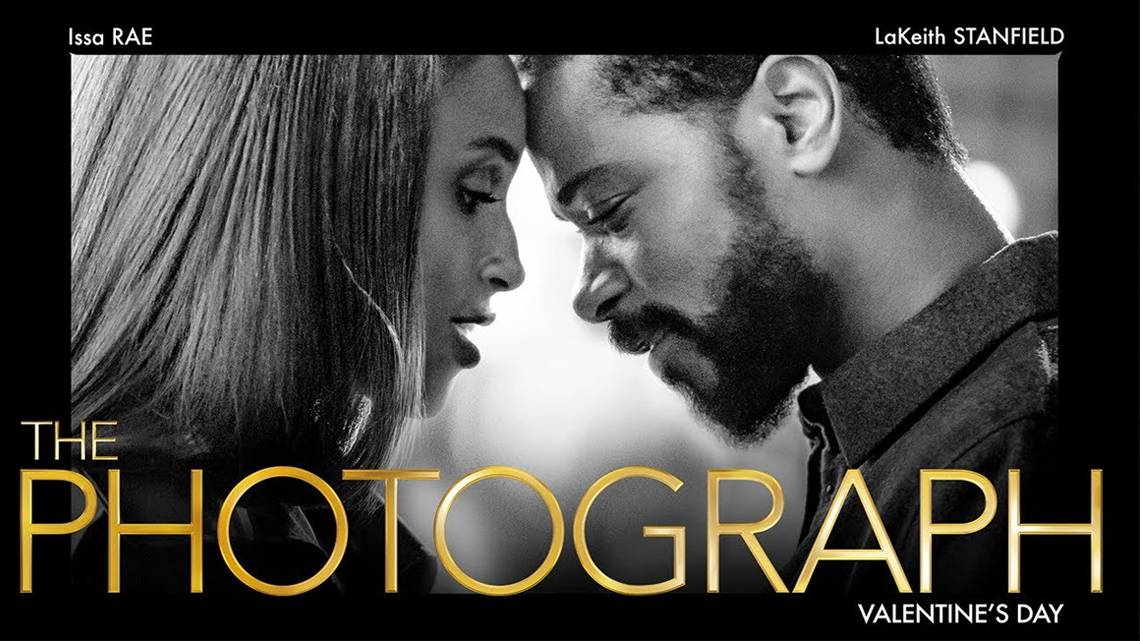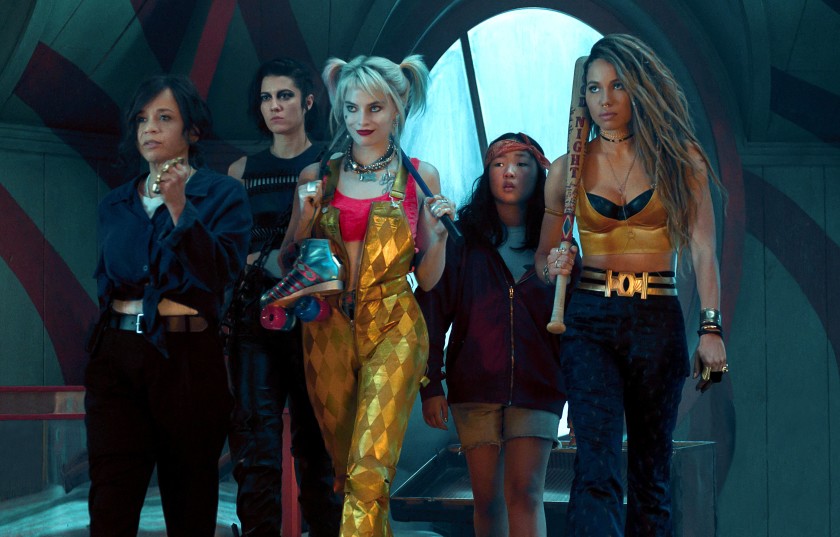I Still Believe
Posted on March 5, 2020 at 10:33 am
B| Lowest Recommended Age: | Middle School |
| MPAA Rating: | Rated PG for thematic material |
| Profanity: | None |
| Alcohol/ Drugs: | None |
| Violence/ Scariness: | Terminal illness |
| Diversity Issues: | None |
| Date Released to Theaters: | March 13, 2020 |
| Date Released to DVD: | May 4, 2020 |

If a movie is called “I Still Believe,” you can be pretty sure it is aimed at those who already believe. Based on the real-life love story of Christian musician Jeremy Camp, it is set in a world of believers and very much in the tradition of Christian testimony, where tragedy is overcome or at least understood through faith. It is also a sincere and tender love story with attractive stars, tuneful songs, and a score by John Debney.
Jeremy Camp is played by K.J. Apa, who plays Archie on “Riverdale” with dark, handsome features that look like a cross between 90s-era Josh Hartnett and Wes Bentley. He is the oldest son of a loving family. As he leaves home for college, we see that he is kind and patient with his developmentally disabled youngest brother, and honorable and generous. His father offers to let Camp take his own guitar to college, saying that “for me, music is a hobby. For you it is a gift.” But there is a surprise. His parents bought him a brand new guitar, a sacrifice that will mean no Christmas presents. They knew he would be too thoughtful to leave his father without music.
Jeremy arrives at a small Christian college where Kry, a Christian musical group he admires, is performing, and he sneaks backstage to meet the lead singer, Jean-Luc La Joie. He asks for advice about “making it.” La Joie says, “It’s not about making it. It’s about what the songs give to people. What do you want to give to people.” He tells Camp to write what he cares about. La Voie writes “love songs to God.” But lately, he’s been writing one to a girl. Jeremy will learn what that means when he sees the girl for himself and is immediately drawn to her.
Melissa (Britt Robertson), and like Jeremy her life is committed to faith and to music as a way to express and strengthen her faith. This is a movie where the usual falling-in-love montage includes not just walking on the beach but service to others as a way for the couple to connect. It is difficult for her to admit her feelings for Jeremy and that creates stress in their relationship. They are on something of a break and he is back home with his family when he gets a call — she’s in the hospital with cancer.
They face it together and get married, against the advice of his family. They are very young and this is a daunting challenge at any age. But as the title tells us, their faith endures.
Those who are not believers in this particular kind of Christianity may question the unquestioning faith of these characters. There are many faith traditions that would see these incidents differently, and the movie has a closed and circular perspective some audience members will find reductive and exclusionary. But Robertson and Apa make a sweet couple and their commitment to God and each other gives their story a tenderness that even those with different beliefs will find touching.
Parents should know that this movie includes a very sad terminal illness, with scenes of medical treatment and suffering and a tragic loss.
Family discussion: What do we learn about Jeremy when he turns down his father’s guitar and gives his brother his phone? Should Melissa have told John-Luck sooner? When you can’t decide what to do, what helps you?
If you like this, try: “A Walk to Remember” and “I Can Only Imagine” and the music of Jeremy Camp


 Jane Austen described the eponymous central figure of her 1815 novel as “a heroine whom no one but myself will much like.” The opening sentence of the book almost challenges us to like her: “Emma Woodhouse, handsome, clever, and rich, with a comfortable home and happy disposition, seemed to unite some of the best blessings of existence; and had lived nearly twenty-one years in the world with very little to distress or vex her.” How can we root for someone who already has everything?
Jane Austen described the eponymous central figure of her 1815 novel as “a heroine whom no one but myself will much like.” The opening sentence of the book almost challenges us to like her: “Emma Woodhouse, handsome, clever, and rich, with a comfortable home and happy disposition, seemed to unite some of the best blessings of existence; and had lived nearly twenty-one years in the world with very little to distress or vex her.” How can we root for someone who already has everything? 




